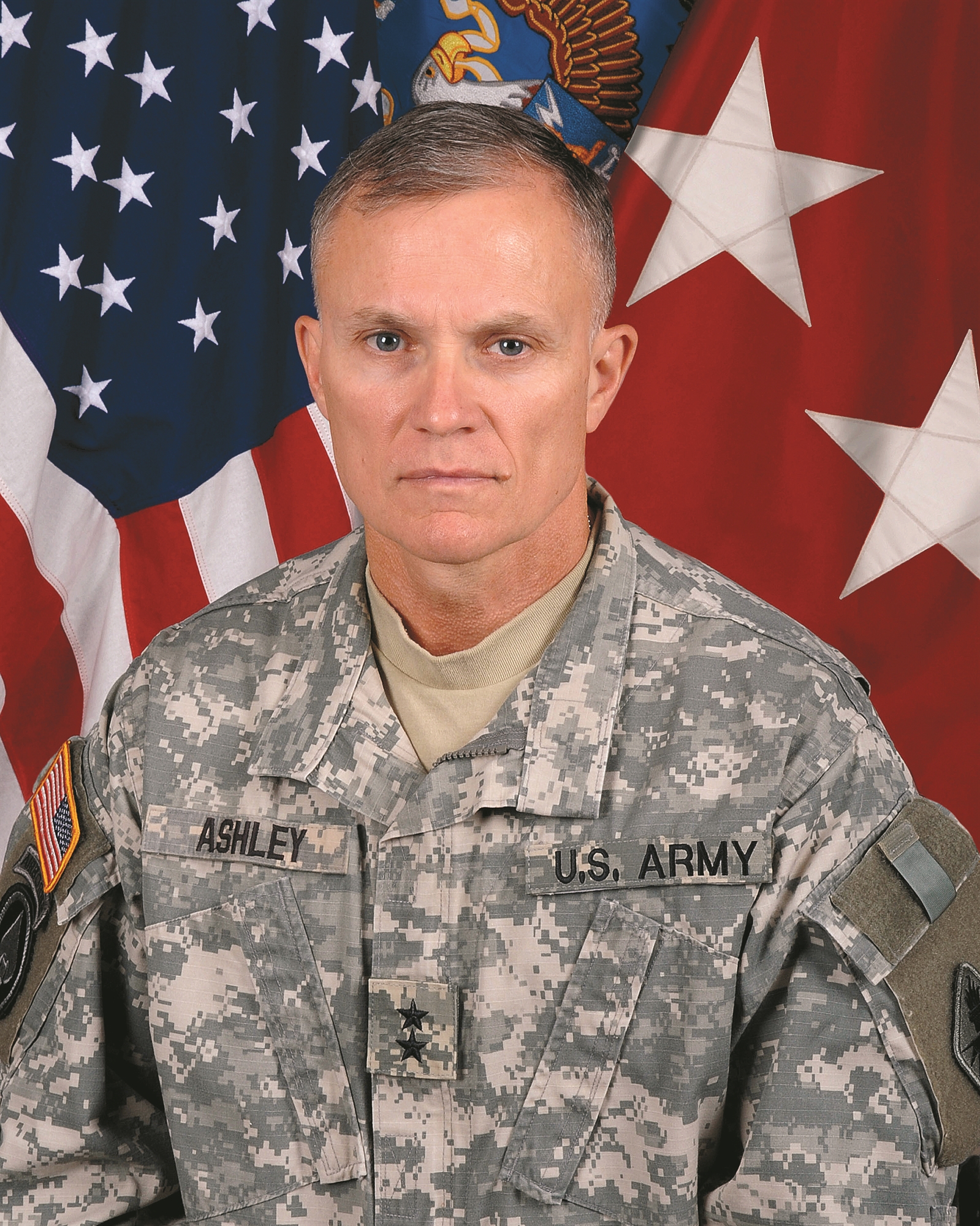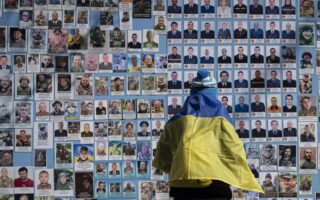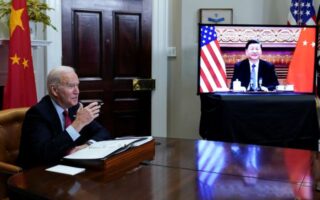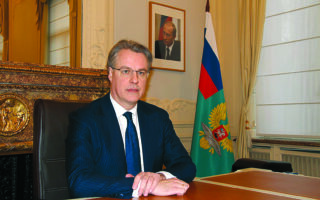How misinformation can determine the course of a war
Ex-director of US Defense Intelligence Agency talks about how the West failed to grasp Putin’s intentions in Ukraine

 Can intelligence shape a battlefield or prevent a war? In the case of Ukraine, the provision of strategic information by the Western alliance allowed Kyiv to adopt crucial decisions and achieve strategic strikes against the numerically superior Russian forces. In this context, the former director of the United States Defense Intelligence Agency (DIA) and analyst at the Jewish Institute for National Security in the United States (JINSA), Lieutenant General Robert Ashley (ret.), explains to Kathimerini the background of the Russian invasion, the “false flag” and “reflexive control” techniques, as well as the scenarios of war dispersion.
Can intelligence shape a battlefield or prevent a war? In the case of Ukraine, the provision of strategic information by the Western alliance allowed Kyiv to adopt crucial decisions and achieve strategic strikes against the numerically superior Russian forces. In this context, the former director of the United States Defense Intelligence Agency (DIA) and analyst at the Jewish Institute for National Security in the United States (JINSA), Lieutenant General Robert Ashley (ret.), explains to Kathimerini the background of the Russian invasion, the “false flag” and “reflexive control” techniques, as well as the scenarios of war dispersion.
Before the outbreak of the war, what strategies did Vladimir Putin use to mislead foreign intelligence services?
When I look at Putin’s strategies to mislead foreign intelligence services, I wonder what did we do to mislead ourselves. If you go back to 2007, Putin was very straightforward when he made a comment in a conversation he had with then-President Bush, where he said, “Ukraine is not a country.” So, the narrative that Ukraine is not a country is not new. It is something that he has been saying for well over a decade. This perspective was also reflected in his actions, based on the events in Crimea in 2014 and in Georgia in 2008. Therefore, we misled ourselves and part of it is the actions that we took.
We have a tendency a lot of times to look at what a foreign leader is doing through a Western lens. So, we sit there and we look at it and say, “What is the probability that he is going to do this?” I looked at people that were subject matter experts in Russia, that had deep expertise, the various think tanks that were around DC, and no one thought this was a rational, logical thing to do given the economic implications. And so they did not give a lot of credence to the facts. Putin interpreted the West’s insignificant response and its mild reaction to the war in Georgia and to the occupation of Crimea as a sign of decline. The Kremlin assessed that Ukraine is not a strategic interest to the West, so Putin adopted the notion that there would be no military action or significant pushback from the West and that he could withstand any economic constraints if he eventually attempted an invasion.
Were there signs signaling the imminent invasion of Ukraine and how were they interpreted?
In the intelligence arena, there are false flag operations. A false flag is when you try to attribute an action to your adversary to give you a reason to do something. So in the case of Ukraine, a month out, the intelligence community is picking up these false flags. According to these, Moscow planned to send operatives into Ukraine and attack Russian interests with the intent to give the reason that the Kremlin looking for. It is a fact that we had intelligence on that and we disclosed it in the middle of January (a month out) when we started seeing more definitive intelligence. We were getting in a better position where we could warn not only the Russians from a deterrent standpoint but also, we could warn the Ukrainians and President Volodymyr Zelenskyy. The further you are away from the actual actions, the estimates are somewhat ambiguous, but the closer you get, the signs become definitive and we start seeing the false flags more clearly.
How can battlefield intelligence be used to deter an escalation?
Let’s go back to the false flag operations. One of the things to deter someone is to uncover his plans and so that is what happened in this case. The exposure of the Kremlin’s plans was used as a deterrent and the message was clear: “We know you are coming over, there will be consequences.” And you have to be unambiguous in the message that you send.
‘When I look at Putin’s strategies to mislead foreign intelligence services, I wonder what did we do to mislead ourselves’
In the case of Ukraine, within 60 days, of the outbreak of the war, we had another false flag operation that was around the use of chemical munitions. The Russians say, “The Americans and the Ukrainians are about to use chemical weapons.” And so this ostensibly false flag was used on the basis that they may be doing that, we uncover it and bring that into the public domain, I think that works as a deterrent factor for any kind of use of chemical weapons that the Russians may have envisioned.
What is the major difficulty Russia faces on the battlefield? Is it the human factor or the replenishment of ammunition?
I think it is a combination of all of those. When you look at the complexity of war there are so many things that factor into it. There are human factors, there is training, there is morale, and there are technological factors in terms of who has the best equipment. Also, there are logistics factors in terms of your ability to resupply and sustain it. So, I think all of that plays into it. Something that weighs more against the Russians is the human factor. The ongoing casualties are pushing Moscow to put conscripts into the fight as they lose seasoned leaders that have the ability to be very effective. That starts to just to atrophy the ability of the Russian forces to be able to operate and to have some sense of morale and go forward, which is completely the opposite of what we are seeing on the Ukrainian side. The Ukrainians have a much stronger reason from a morale stand because they are defending their homeland. Also, at some point, the ammunition and the ability to resupply become an issue. We are already seeing the Russians pull out T-54/T-55 tanks, tanks put into service after the end of the Second World War, while they are bringing unmanned aerial vehicles, UAVs, from Iran, and ammunition from North Korea, so they are depleting their supplies. And so that is becoming a factor over time as well. On the other hand, I think the biggest thing is how will this play out at the individual soldier level. Clearly, Putin does not care about casualties. They are going to put as many Russian lives on the line without any concern about that. I think at some point that has got to have a cumulative effect, but it will take time for that to happen.
What is reflexive control and how was it used by the Russian side?
Reflexive control is a kind of information operation. It is where I feed you with information in such a way that I get you to choose the course of action that I desire. I get you to do what I want you to do, but you think it is your decision and your course of action that is most advantageous to you, when in fact it is most advantageous to me. Reflexive control is something that dates back, probably, three or four decades. I think one of the best examples in terms of trying to influence would go back to look at the 2016 elections where they tried to seed through bots, through disinformation, through various information campaigns to get the American population to act in certain ways and in some cases to divide us and ask ourselves, “Who we are as a nation?” I think that is a great example of reflexive control.
Can this war be extended to areas of the Balkans with increased Russian influence?
I think the Russians want to add complexity where they can to US military doctrine. We kind of put it in the context of presenting multiple dilemmas to the enemy. And so, in this context when we talk about the Balkans or about the Middle East, where can Russia create multiple dilemmas for the West militarily, the situation becomes a little more problematic. It is clear Russia has deep interests in Serbia. They have done their best to kind of court Bosnia-Herzegovina, to kind of move them back into their sphere and break them from the alliance that was put in place after the war in the Balkans. And so they are always moving in different spheres to create additional dilemmas for the US. Could that result in a military conflict? I do not think it is an extension of anything that is taking place in Ukraine. I just think it is a natural place where they have an interest in trying to make sure that the nations in the Balkans do not align or go down a path to join NATO. Back to my comment on the Russian doctrine, they are going to create dilemmas for the US and draw some of these other nations into their sphere of influence. And that is going to happen whether through the use of instruments of power, or through diplomatic, military, or economic information. What Russia and China are looking to do is to rewrite the rules order that is been in existence since World War II and into one that is more favorable to them. And the creation of that different rules order would allow them to expand their influence to other emerging autocratic nations.





